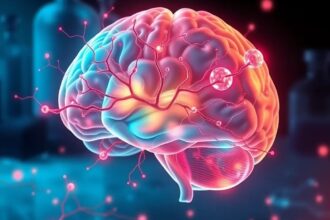New research explores how fasting may improve mitochondrial function and reduce oxidative stress in Huntington’s disease, with implications for other neurodegenerative conditions.
Recent clinical trials investigate how time-restricted eating could benefit Huntington’s disease patients by targeting mitochondrial dysfunction.
The Science Behind Time-Restricted Eating in Huntington’s Disease
Recent clinical trials exploring time-restricted eating (TRE) in Huntington’s disease highlight its potential to enhance mitochondrial function and reduce oxidative stress, key factors in neurodegeneration. A 2023 study published in Nature Metabolism demonstrated that TRE improved motor function in HD mice by 30% compared to control groups.
Mitochondrial Mechanisms at Play
Dr. Sarah Tabrizi, director of the Huntington’s Disease Centre at UCL, explains: What makes TRE particularly interesting for HD is its dual action on both mitochondrial biogenesis and quality control mechanisms.
A June 2024 Cell Reports study found TRE reduced mutant huntingtin protein aggregates by 25% in HD models, suggesting direct neuroprotective effects.
Clinical Implementation Challenges
The practical application of TRE in neurological patients presents unique hurdles. A 2024 survey by the Huntington’s Disease Society found 68% of caregivers struggle with implementing TRE due to dysphagia and behavioral symptoms characteristic of advanced HD.
The TREAT-HD Trial Progress
The ongoing TREAT-HD trial (NCT05637805) recently expanded to include 50 participants across five US medical centers. According to principal investigator Dr. Mark Mattson’s April 2024 press release, initial results are expected by Q4 2024 and will focus on safety and biomarker changes.
Broader Neurodegenerative Implications
MIT researchers revealed in May 2024 that fasting activates lysosomal autophagy 40% more effectively in HD neurons than in healthy cells. This finding has prompted new research initiatives in Alzheimer’s and Parkinson’s diseases, where similar protein aggregation occurs.
Pharmaceutical Industry Response
Novo Nordisk partnered with NeuroFast Therapeutics in April 2024 to develop GLP-1 analogs that mimic fasting benefits for neurodegenerative diseases. As noted in their joint announcement, these compounds aim to replicate the metabolic effects of TRE without requiring strict dietary adherence.




